From poacher to protector: Local communities embrace conservation of crucial marine treasure
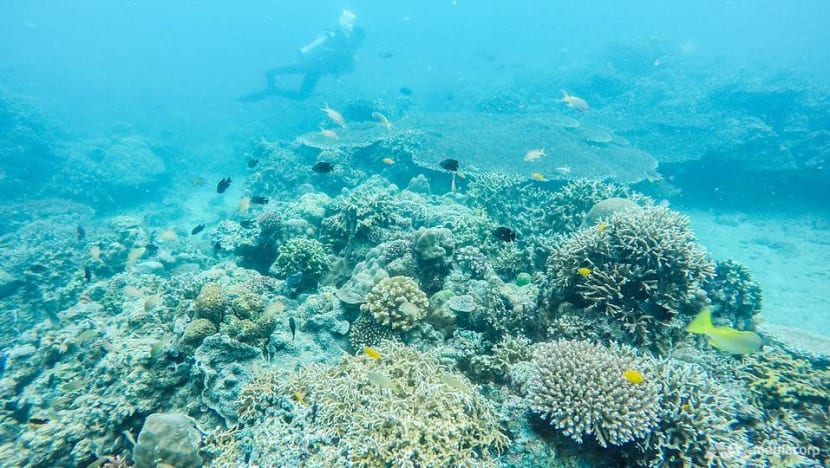
The Verde Island Passage is home to an array of marine life. (Photo: Marco Lopez)
LOBO, Philippines: Sonny Badal cared little about the environment as a young man. He plundered the coral reefs near his home village of their aquatic treasures, captured fish in their sanctuaries and relished the money he made as a result.
He says he was one of the most successful fishermen in the area - Lobo, a sleepy coastal municipality in Batangas, southern Luzon.
It is a place where the sun shines strong on long stretches of white sand and wooden boats drift languorously on the viridian water that extends to the horizon. During the long monsoon season, clouds roll in with foreboding, unfeelingly dropping shadow and squally rain on the same boats and the men who navigate them.
“When I first started fishing, it didn’t matter to me at all. The only thing that mattered to me was to catch more fish,” he said.
“I used to place my net on top of the corals to catch more fish, where a lot of them live. It gave me a large amount of profit.”
It would take years for Badal to see the impact of what he was doing to the precious marine ecosystem around him. Over the years, his yields reduced as the reefs reeled. He did not quite understand why.
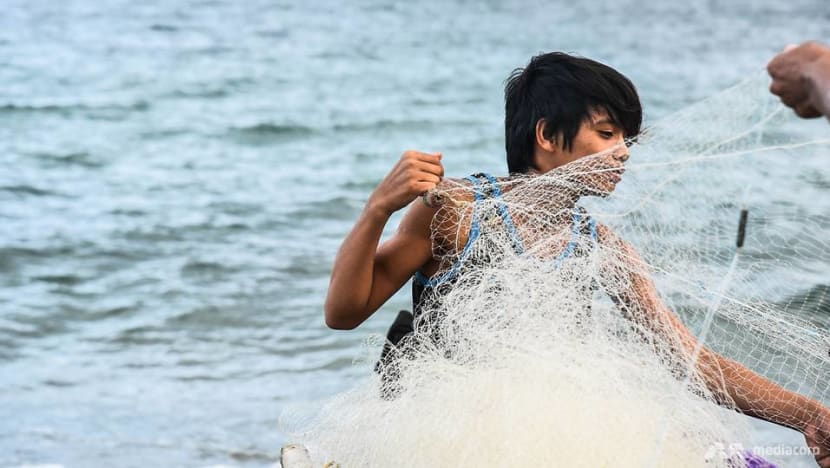
“I didn’t have any idea what would be the outcome of my wrongdoings. A lot of corals had been damaged because of what I did,” he admitted.
When a friend took Badal to visit a model marine sanctuary at Romblon where protected fish species would swim right up to human hands, something changed in him. “It amazed me and encouraged me to do better,” he said.
“Then I came back to our village and shared my experience and immediately they appointed me as the new chairman for a commission on fisheries. I was unruly back then, but to be able to do better and learn from my mistakes I accepted the position and did my job well.
“I became more educated and gained more knowledge on how to preserve and protect our sea and its marine resources.”
Badal’s decision was not inconsequential. His fishing ground, and that of thousands of others, is at the heart of the Verde Island Passage (VIP), considered the epicentre of the world’s marine biodiversity.
It boasts hundreds of species of coral, is a whale migration spot, a tourist attraction and a source of renewal for other stuttering reefs around the world. At least two million people directly or indirectly rely upon the VIP for food or livelihood.
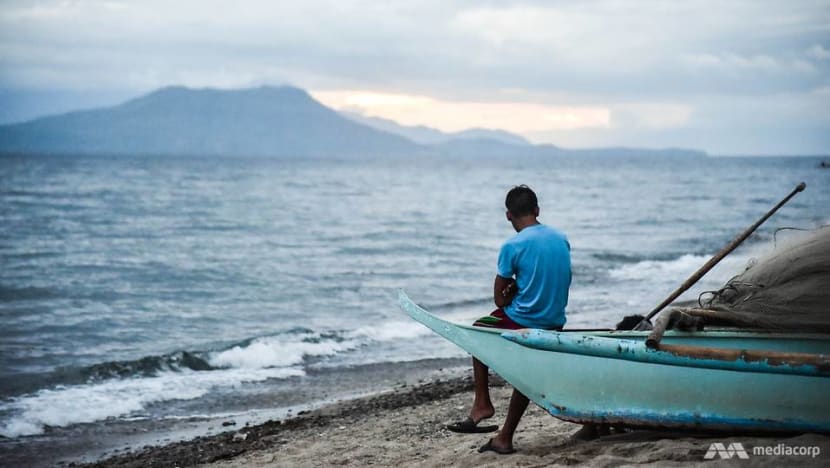
Badal is now one of its chief defenders. His community has formed Batangday Dagat, a sea patrol unit that hunts for fellow fishermen who continue to pillage the seas.
Batangay Dagat take their guard in the darkness. Even the light from a cigarette will betray their location as they lurk between the waves. With no moonlight above, the blackness is thick and unrelenting but these men need no compass on these waters.
“There are many intruders who want to get into our marine sanctuary. Some of them take the corals. They even look for some sea decorations and herbal medicines to sell to Chinese businessmen in Manila,” he said.
“Some of them are armed with high-powered guns.
“I feel disappointed. Obviously we have the same occupation but some people are not content, they break rules and do illegal things.”
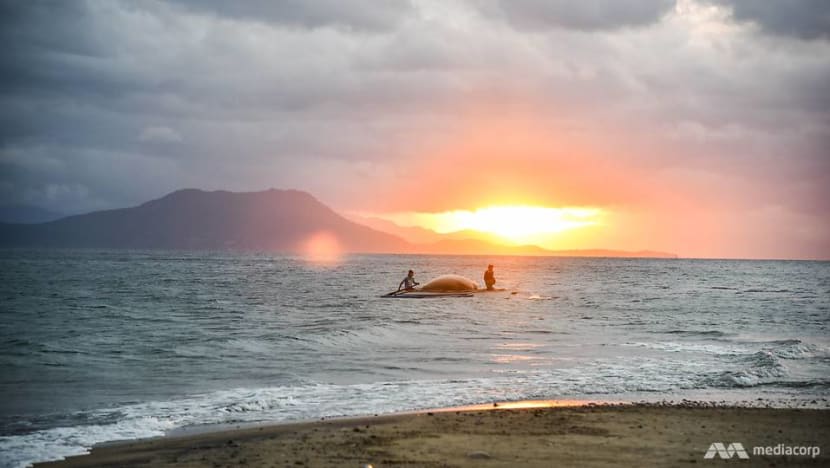
Putting environmental protection ahead of daily needs is a reality that can be hard to reconcile for poor communities here.
Joseph Ascalon, through non-government organisation The SEA Insitute, is leading an awareness campaign about the importance of conserving the natural wonder of the VIP.
“The first thing we do is to help them see what’s out there,” he said.
“We show them pictures of the species out there and they’re like, woah, that’s there? That’s in front of my house? They start to realise that each species is unique, it’s important and it sort of gives them the drive to and the passion to protect what they have,” he said.
“On the other hand it’s also very difficult because they see the Verde Island Passage as a source of livelihood, so you have to do a little bit of a balancing act of how much development do you put in to get their livelihood versus protecting it for the future. “
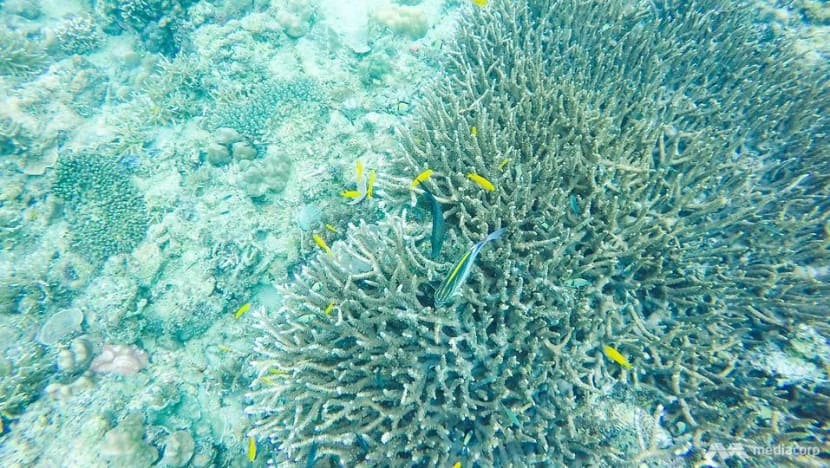
Already, sprawling villas straddle the coastline, owned by sporadically-visiting movie stars who for now still call subsistence fishermen their neighbours.
“It’s starting to get developed. And the communities here need to realise with development comes a lot of benefits, but can also create a lot of stresses, a lot of negative impact on their environment,” Ascalon said.
“It’s gratifying to see that they’re changing their mindsets, changing fishing methods and making sure that they protect these fishes.”
The VIP has remained resilient despite ongoing threats from climate change, warmer waters and increasingly regular typhoons. But natural resistance is finite, Ascalon argues, and eventually the trends leading towards local environmental destruction will need to be reversed by all those depending on the passage.
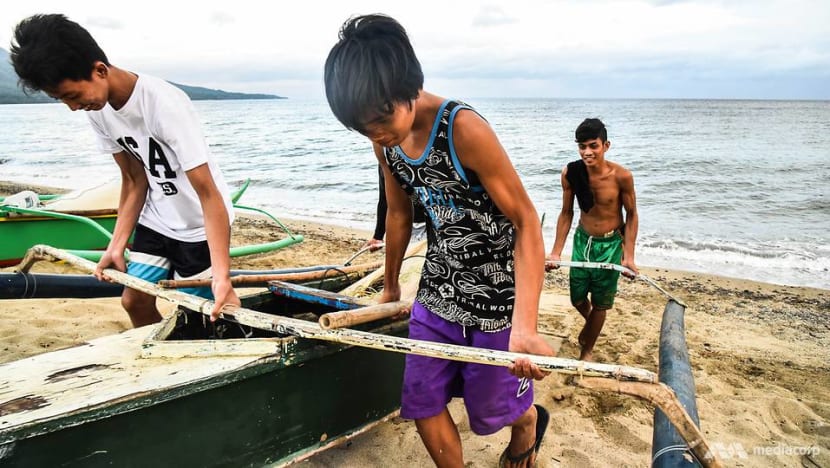
“I’m optimistic because there is no other way. It’s not an option to lose the Verde Island passage and its resources. There are real challenges but we have hope,” he said.
Badal too feels assured, despite the chemical-wielding poachers, the looming mega-resorts and the rising menace of global warming, that his small part of the world under his care and custody will thrive into the future. As he dives below the surface through the colourful formations and enormous artificial reefs his organisation has installed he can already see the progress.
“Today, if you can see our ocean down there, it looks like an underwater paradise,” he said. “It is very fulfilling on my part and a huge achievement.”
For more on this and other projects around Southeast Asia, tune in to Tapestry: The Heart of ASEAN on Channel NewsAsia every Tuesday from Feb 27 to Mar 27 at 11pm.














